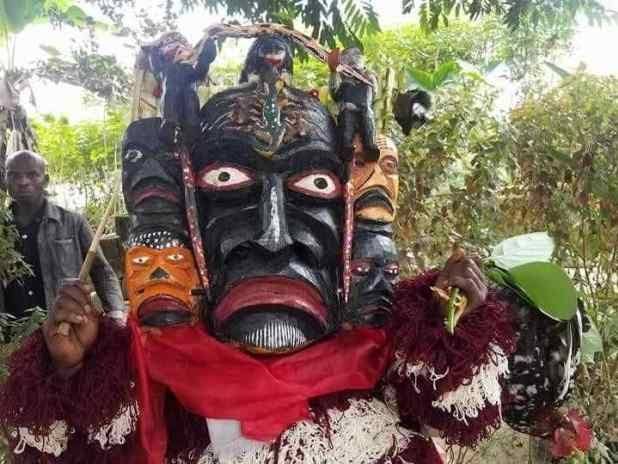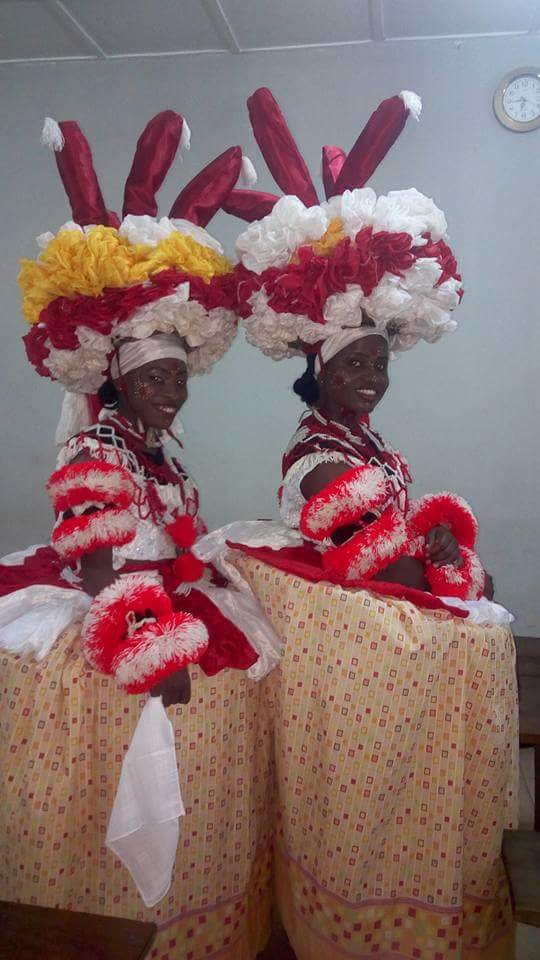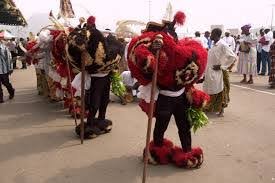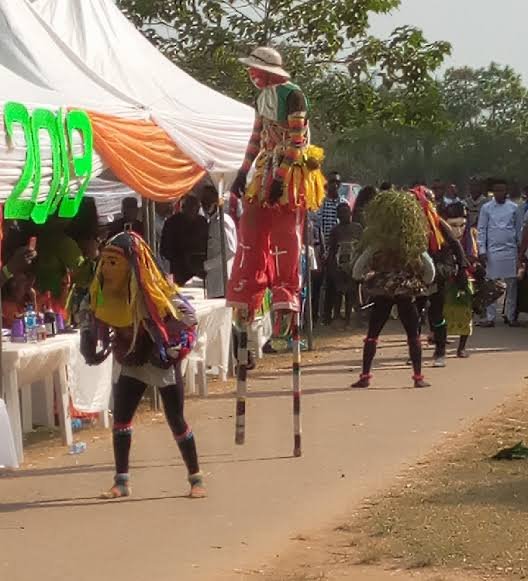Hi Hivers!
Today I feel like telling you a story about my Annang heritage. I hope you will find it interesting. Let's roll.
Annang is one of the tribes in Nigeria. The Annang people are found mainly in Akwa Ibom State of the South South Region of the country. Cultural groups especially in time past might be seen as cults of a sort owing probably to the fact that they were clubs of restricted membership that indulged in mysterious activities. Some of them were of religious inspiration and connected with initiatory and adolescent rites.
In Annang land, the following traditional groups were in existence in the past and have been preserved till this day even though all of them have undergone metamorphoses.
Ekpo Society
Ekpo in Annang means Ghost. The Ekpo masquerade simulates ancestral presence. Members of the society wear wooden masks which are often highly carved and decorated to possess an intricate and often fearsome appearance. Members of the society upon wearing the masks impersonate the ancestors and enter a state of spiritual possession.

Link
Ugly masks, darkly painted with distorted features, represent idiok ekpo that is, evil spirit. Beautiful masks worn only on the opening and closing performances in the market and painted white or yellow represent mfon ekpo good spirits. Ekpo ndem is the most awesome of the masks and the player, always a member of the family of the societys founder, engages in a week of seclusion and purification, eating only raw food in order to enter a more complete form of possession.
Ekpos plays form an integral part of the agricultural and matrimonial seasonal calendar. The opening ceremony of Ekpo is called Utuak eduat ekpo that is, the official hurling of a spear into the town square. During the first week of the ekpo season, the feast of nkai which refers to the passing of the old year is celebrated. The ekpo season ends with the utuak ndok ceremony, two or four weeks after the season opened. The players return to the market, the men return to their compounds and women knock on their doors to bid the ancestors farewell. Rain should fall on the following morning to wash their footprints.
In ancient Annang territories, there were afe ekpo Ekpo lodges, which were formed out of networks and alliances which cut across lineage and village lines. Lineages were each represented in ekpo through office holding and various ekpo societies formed clusters around those prominent markets where opening and closing performances were held.
Ntok Ekpo Society
Ntok Ekpo or Ekpo Ntok Eyen was childrens counterpart of the Ekpo Masquerade. The masks of this play were more beautifully carved and decorated than those of the seniors. This was to express purity and signify youthfulness.
On outing, Ntok Ekpo members usually received gift from adults. At a members funeral ceremony, the group would perform, dance and sing songs for their departed colleague. Non-members of the group especially the elderly women could watch Ekpo Ntok Eyen without fear but teenage girls were often wiped by the grioup especially the members with masks on.
Abang
Abang is the Annang word for Pot. Abang was a play for young girls. The girls were usually decorated with a special ring tied round the waist obviously to depict a pot and moreover to cause the walloping of the buttocks.
Ekong
Ekong could be described as the males counterpart of Abang. This group of young boys was very popular in those days. The members were usually decorated with njoho round their waists, socks on their hands, beautiful head ties on their wrists and the iso mbre were adorned with broken pieces of mirror among other things.
Ekong was usually played during Usoro ukabare isua (end of year celebration). The dancers accompanied by the drummers went from one compound to the other playing and entertaining the members of the compound. They got gifts ranging from biscuits to money in return.
Ebre Society
The Ebre Society was the most prominent womens secret society in Annang. Ebre in Annang means water yam which is food and cultivated by women. The Ebre Societys connections to the water yam plant are ill defined. What perhaps made the society popular was the fact that it was meant for only the morally upright women in the area. The Ebre Society played an important role in social control and its authority extended over unmarried women.

Ekpe Society
Ekpe in Annang means leopard. The Ekpe society is one of the oldest cults East of the Niger. History has it that the society expanded westward from the Cross River area into the Ibibio and Annang speaking regions. The society had a secret sign language known as nsibidi.

Link
Enin Play
The Enin play was a popular play of the Ukanafun people. Enin in Annang means Elephant and the play usually took the picture of an elephant. It was the introduced in Ikot Akpa Nkuk, (the current Local Government Headquarters of Ukanafun) by a man called Akpan Udondok.
Awio Okpo
Awio Okpo play was another popular play in ancient Annang land. This play that was usually played by young boys through the supervision of the adults, gained the admiration of all, both young and old through its captivating dance steps. The dancers performed this play on stilts as high as two metres from the ground. The drummers and the dancers understood one another perfectly well and this understanding reflected in the rhythms and the corresponding dance styles.

Link
Utu Ekpe Play
Utu Ekpe is the Annang word for spider. This play as the name implies was usually staged to depict a spider. It was performed with the use of ropes and great acrobatic displays. Owing to the huge cost of bringing Utuekpe out, the play was mainly witnessed during important occasions in the land like the coronation of Obong Ikpaisong (Clan Head).
Nnabo Play
Among the plays that commanded so much interest in ancient Annang land was Nnabo. This play was often for the young and energetic young men who were courageous to inflict and accept the injuries mainly from machete cuts. It was a play that brooked no nonsense. Nnabo was always a delight to watch, this was as aresult of the glamour and the scintillating performances that went with it. The Nnabo play had divisions: the band division, the ekpo nnabo division and the main Nnabo division. Among the main Nnabo, there were Abiom Akpan Nnabo, Abiom Ako Ntuen and the real Nnabo. Due to the destructive nature of the real Nnabo, there was always a rope tied round the waist and a brave youngman holding the end of the rope to restrain him from harming non initates.